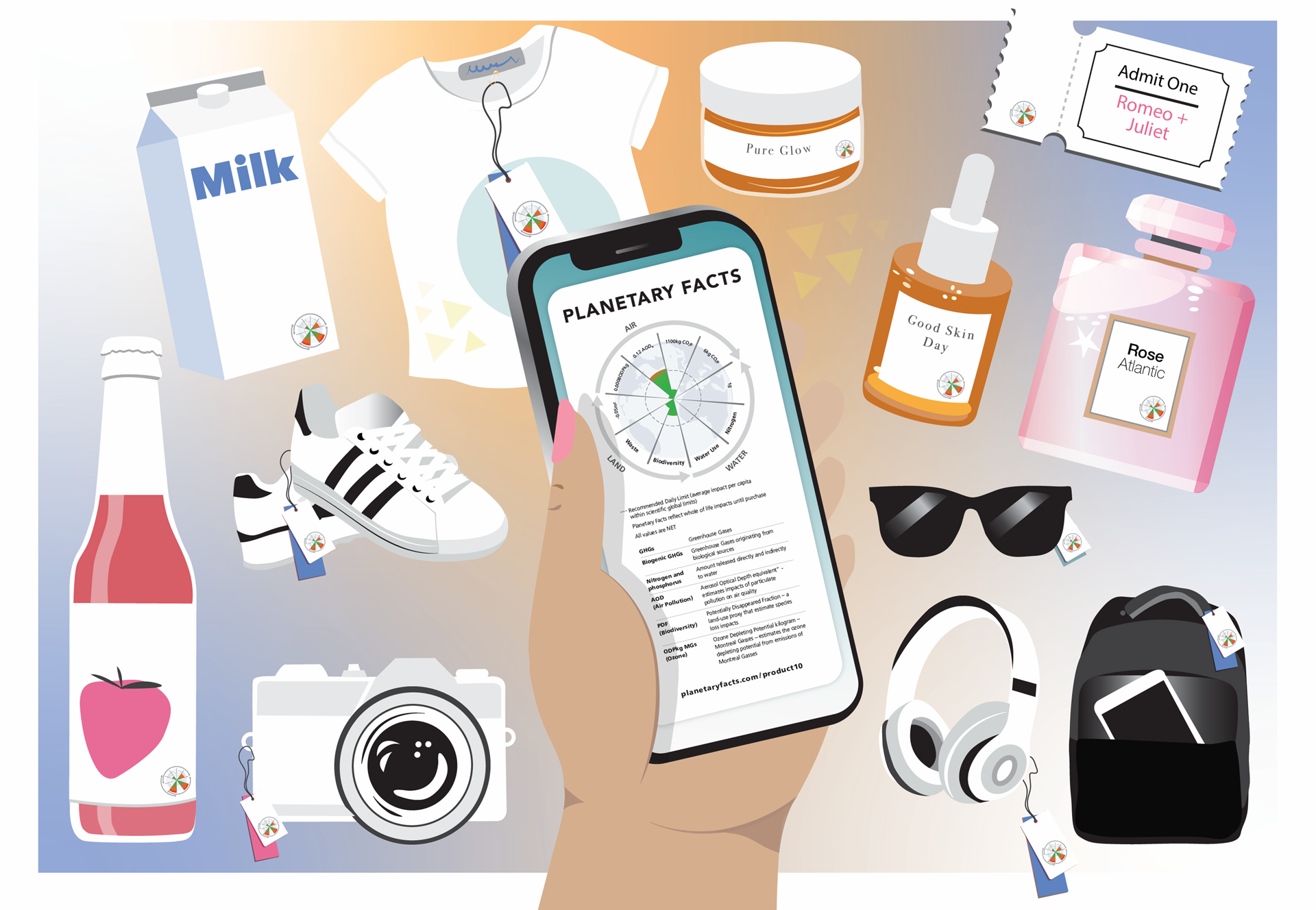We rely on the healthy and self-sustaining properties of Earth's natural systems to survive – they help ecosystems thrive, keep our air breathable and control the climate. But our exponential global growth and consumption are disrupting these systems and are harming the Earth's ability to maintain a healthy future for the myriad ecosystems we all rely on.
Climate Scientists have identified nine 'planetary boundaries', the limits within which Earth can safely operate. Extending beyond these boundaries can risk our planet’s health, leading to more extreme and volatile living conditions, disrupted ecosystems and harm to biodiversity.
In 2023, we exceeded the safety limits in six of the nine boundaries: climate change, biodiversity loss, land-system change, freshwater use, biogeochemical flows, and release of novel chemicals. When the planetary boundaries framework was first published in 2009, only four of the boundaries had been exceeded. Returning to and remaining within the planetary boundaries will require effort at every scale of activity, from individual lifestyle choices, to business activity and government investment. Action is required now, particularly in reshaping our energy and food systems, to prevent any further imbalance and regenerate and restore the planet’s environmental health.
While the planetary boundaries highlight the scale and immediacy of Earth’s challenges, they were not intended to direct the specific actions or decisions needed. For that, another lens and approach needs to be applied - such as that provided by the Planetary Accounting Network (PAN).
PAN is a non-profit from Aotearoa New Zealand, and works to provide individuals, businesses and governments with science-based information and practical action.
Since 2019, Beca has taken pride in being a founding member of PAN; to support their mission, to bring learning opportunities to our team and to provide our clients valuable insights through dedicated secondments and an ongoing knowledge exchange.
To inform action, PAN uses a framework called Planetary Accounting, a scientifically peer-reviewed framework, that translates the Planetary Boundaries to local scales. It enables science-based decision making, from lifestyle and community choices; to the design of products, services and infrastructure; business strategy; and regional planning and policy. Planetary Accounting quantifies human-environmental impacts across air, land, water and life, measuring progress against global sustainability limits.
For many businesses, environmental assessments and reporting are often done at a corporate scale, yet a large proportion of decisions are made through the lens of products and services. For example, for many businesses, the emissions associated with their value chain (often referred to as ‘Scope 3 emissions’) account for over 70% of their total carbon footprint. Globally, household consumption contributes to over 60% of greenhouse gas emissions and between 50-80% of total land, material, and water use.
Whilst there are many certifications and eco-labels in circulation, they are not addressing the market need of holistic, transparent, and robust data that is comparable across any purchase to support their decision making. According to the Institute of Directors, the professional body for directors in New Zealand, sustainability-conscious customers are on trend to become the majority of the market within five years. As such, businesses urgently need tools that enable them to quantify and communicate the flow-on effects of their products and services.
Beca has been supporting a PAN-led initiative that tackles this challenge – called Planetary Facts. Inspired by nutritional facts labels on food, PAN set out to establish a methodology that would enable the quantification of the globally critical environmental facts about any product or service, including carbon, biodiversity, land-use, air pollution, water consumption, and waste, and to put this into context – as a proportion of a (scientifically) recommended daily or monthly limit. They provide businesses the information they need to produce better products and buyers the information they want for their purchasing decisions.

Image courtesy of Planetary Accounting Network
Through our partnership, Beca have now sent three secondees into PAN’s team to provide support to this important mahi, and to give our people on-the-job learning opportunities that enable them to bring new skills and ideas back to Beca, and our clients.
“Coming from a construction and engineering background, this role allowed me to develop and grow my skills on a research and development focused programme of works. I also gained valuable experience working directly with a range of different project stakeholders, including a C-suite executive from one of NZ’s most well recognised brands,” says Tom Garrett, Senior Associate – Programme Management, Beca
PAN’s goal is to have the Planetary Facts labels in front of 250,000 New Zealanders by 2026 and more than 12 million people in New Zealand, Australia, and Singapore by 2028. If those pledging to make environmentally conscious choices act, the Planetary Facts initiative could curb approximately 20 million tonnes of CO2 emissions by 2028, and likewise improve biodiversity, water and air quality, land-use and waste management.
If you’d like to learn more about the Planetary Accounting Network and our work together, or join the Planetary Facts programme, then please get in touch with Tom Kelly and join us in supporting this important kaupapa.